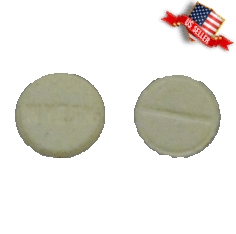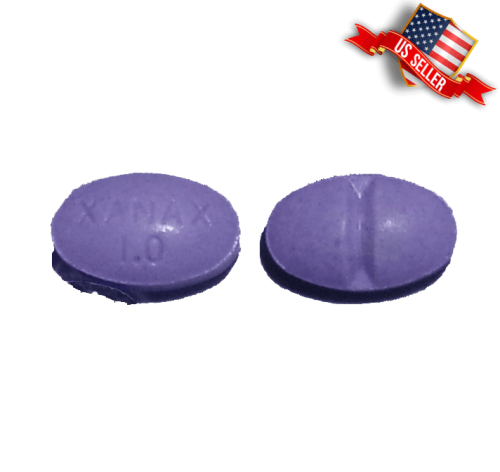Anxiety Medications: Comprehensive Guide to Relief and Treatment
Introduction to Anxiety Medications
Anxiety disorders affect millions of people worldwide, making daily activities challenging and overwhelming. Thankfully, various anxiety medications are available to help manage and alleviate symptoms, offering much-needed relief and improving quality of life.
This comprehensive guide provides an in-depth look at the different types of anxiety medications, their benefits, potential side effects, and essential information for patients seeking treatment.
Understanding Anxiety Disorders
What are Anxiety Disorders?
Anxiety disorders encompass a range of mental health conditions characterized by excessive fear, worry, and nervousness.
Common types include generalized anxiety disorder (GAD), social anxiety disorder, panic disorder, and specific phobias. These conditions can interfere with day-to-day activities, relationships, and overall well-being.
Symptoms of Anxiety Disorders
Symptoms of anxiety disorders vary but commonly include persistent worry, restlessness, irritability, difficulty concentrating, muscle tension, and sleep disturbances.
A severe case may result in a panic attack, which is characterized by sudden, intense fear and physical symptoms like chest pain, heart palpitations, and shortness of breath.
Types of Anxiety Medications
Benzodiazepines
Overview
Benzodiazepines, such as Xanax (alprazolam) and Valium (diazepam), are commonly prescribed for short-term relief of severe anxiety symptoms.
They work by enhancing the effects of gamma-aminobutyric acid (GABA), a neurotransmitter that promotes calmness and relaxation.
Benefits
– Rapid onset of action
– Effective in reducing severe anxiety and panic attacks
– Useful for short-term treatment and acute anxiety episodes
Potential Side Effects
– Drowsiness and sedation
– Dependency and withdrawal symptoms
– Memory problems and confusion
Selective Serotonin Reuptake Inhibitors (SSRIs)
Overview
SSRIs, including Prozac (fluoxetine) and Zoloft (sertraline), are widely prescribed for long-term management of anxiety disorders. They work by increasing the levels of serotonin in the brain, which helps regulate mood and reduce anxiety.
Benefits
– Effective for long-term anxiety management
– Low risk of dependency
– Can improve mood and overall mental health
Potential Side Effects
– Nausea and gastrointestinal issues
– Insomnia or drowsiness
– Sexual dysfunction
Serotonin-Norepinephrine Reuptake Inhibitors (SNRIs)
Overview
SNRIs, such as Effexor (venlafaxine) and Cymbalta (duloxetine), are another class of medications used to treat anxiety disorders. They work by increasing the levels of both serotonin and norepinephrine in the brain.
Benefits
– Effective for both anxiety and depression
– Can improve energy levels and mood
– Long-term management of anxiety symptoms
Potential Side Effects
– Increased blood pressure
– Nausea and dizziness
– Insomnia or fatigue
Tricyclic Antidepressants (TCAs)
Overview
TCAs, like Elavil (amitriptyline) and Tofranil (imipramine), are older antidepressants that are sometimes used to treat anxiety disorders. They work by affecting various neurotransmitters in the brain.
Benefits
– Effective for certain anxiety disorders
– Useful for patients who do not respond to SSRIs or SNRIs
Potential Side Effects
– Dry mouth and constipation
– Weight gain
– Drowsiness and dizziness
Beta-Blockers
Overview
Beta-blockers, such as Inderal (propranolol), are sometimes used to manage the physical symptoms of anxiety, such as rapid heart rate and trembling. They are not typically used as the primary treatment for anxiety disorders but can be helpful in specific situations.
Benefits
– Effective in reducing physical symptoms of anxiety
– Useful for situational anxiety, such as performance anxiety
Potential Side Effects
– Fatigue and dizziness
– Cold hands and feet
– Depression in some cases
Choosing the Right Anxiety Medication
Factors to Consider
Choosing the right anxiety medication depends on several factors, including the type and severity of the anxiety disorder, individual response to medication, potential side effects, and any other underlying health conditions. It is essential to work closely with a healthcare provider to determine the most suitable treatment plan.
Personalized Treatment
Each individual’s experience with anxiety and medication is unique. Some patients may respond better to one type of medication than another. Therefore, it may take time and adjustments to find the most effective and well-tolerated medication.
Important Safety Information
Potential Risks and Side Effects
All medications have potential risks and side effects. It is crucial to be aware of these and to communicate any concerns with your healthcare provider. Regular follow-ups and monitoring can help manage side effects and ensure the effectiveness of the treatment.
Dependency and Withdrawal
Certain anxiety medications, particularly benzodiazepines, have the potential for dependency and withdrawal symptoms. It is important to use these medications only as prescribed and to follow your healthcare provider’s guidance when discontinuing or adjusting the dosage.
Drug Interactions
Anxiety medications can interact with other medications, supplements, or underlying health conditions. Always inform your healthcare provider of all medications you are taking to avoid potential interactions and complications.
Conclusion
Anxiety medications can provide significant relief for individuals struggling with anxiety disorders. By understanding the different types of medications, their benefits, and potential side effects, patients can make informed decisions about their treatment options. Always consult with a healthcare provider to determine the best course of action for your specific needs, and take the first step towards improved mental health and well-being.
-
Add to WishlistAdd to Wishlist
Select options This product has multiple variants. The options may be chosen on the product page
-
Add to WishlistAdd to Wishlist
Select options This product has multiple variants. The options may be chosen on the product page
-
Add to WishlistAdd to Wishlist
Select options This product has multiple variants. The options may be chosen on the product page
-
Add to WishlistAdd to Wishlist
Select options This product has multiple variants. The options may be chosen on the product page
-
Add to WishlistAdd to Wishlist
Select options This product has multiple variants. The options may be chosen on the product page
-
Add to WishlistAdd to Wishlist
Select options This product has multiple variants. The options may be chosen on the product page
-
Add to WishlistAdd to Wishlist
Select options This product has multiple variants. The options may be chosen on the product page
-
Add to WishlistAdd to Wishlist
Select options This product has multiple variants. The options may be chosen on the product page
-
Add to WishlistAdd to Wishlist
Select options This product has multiple variants. The options may be chosen on the product page










